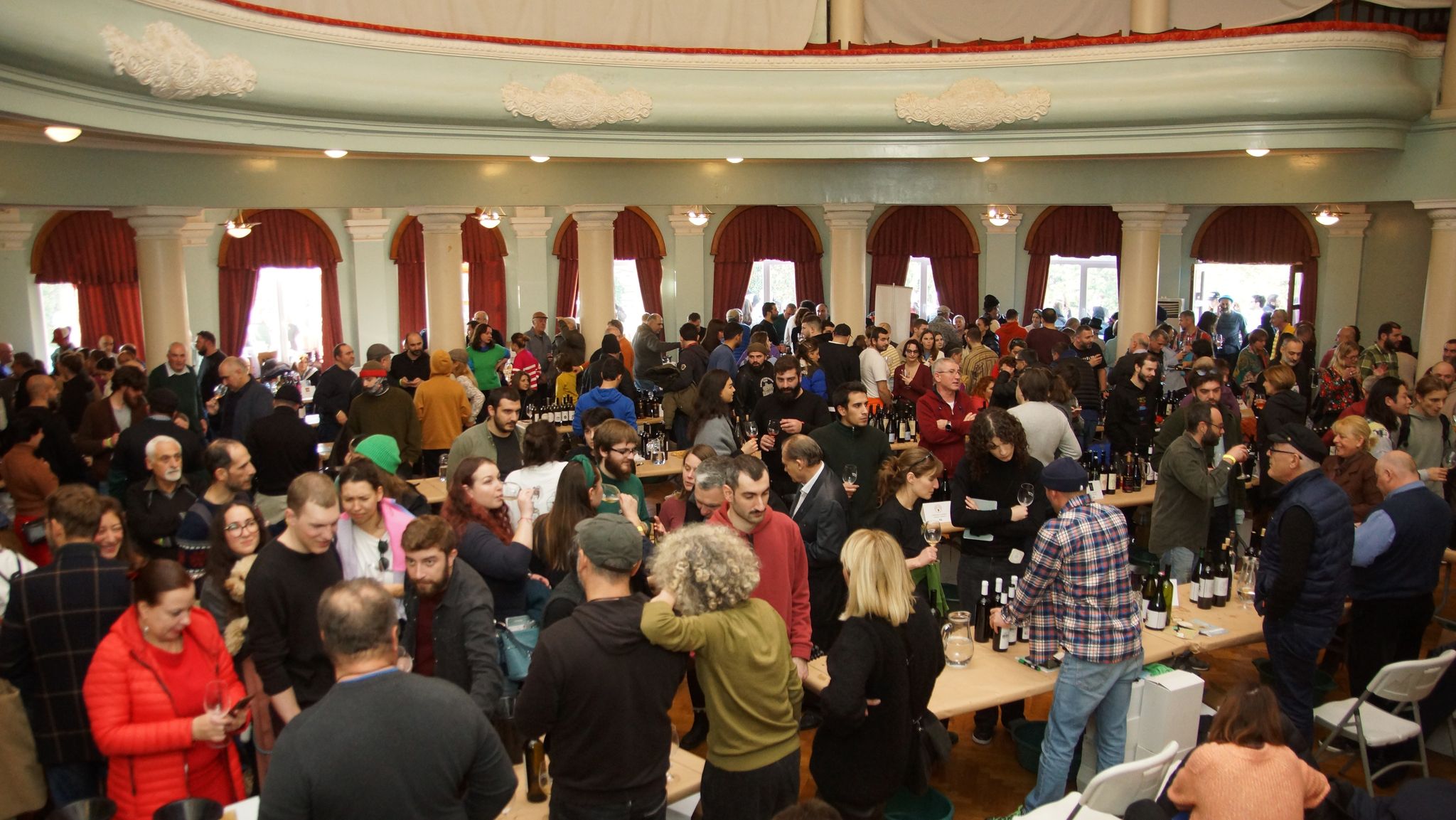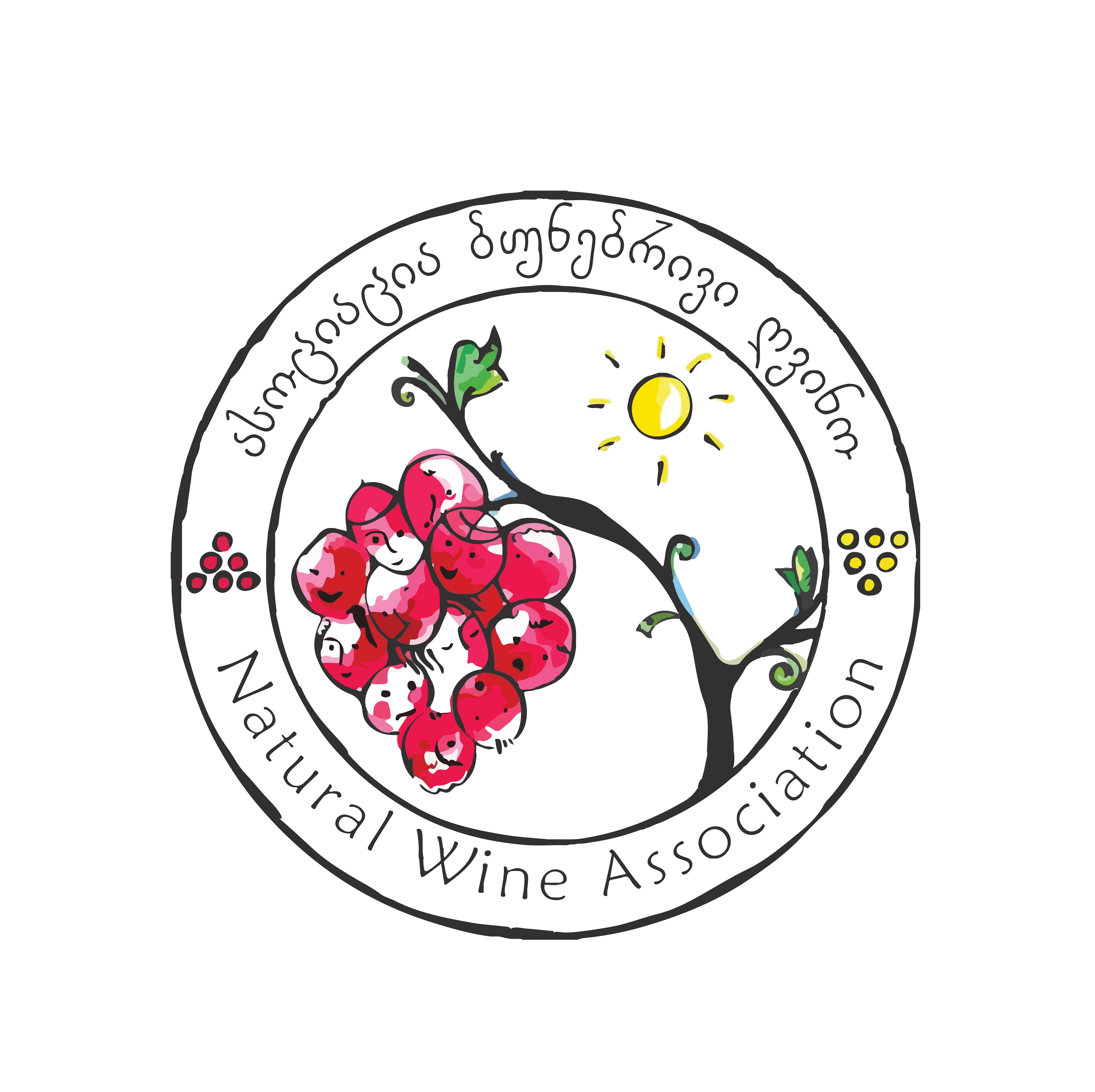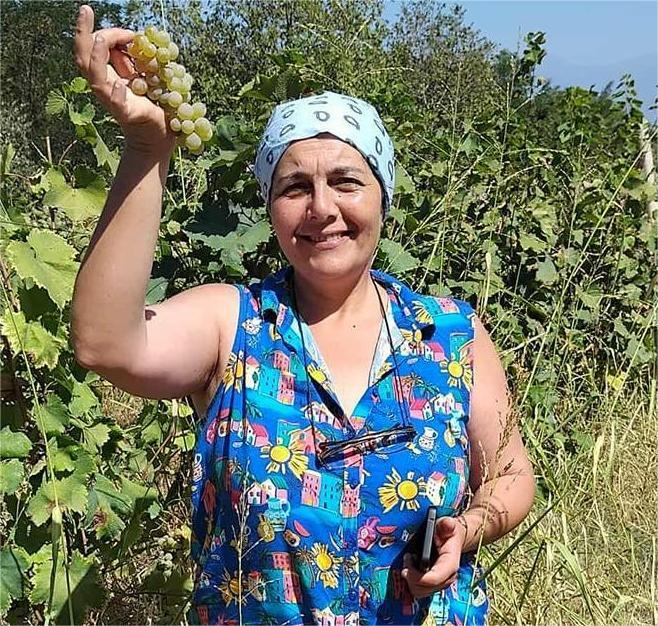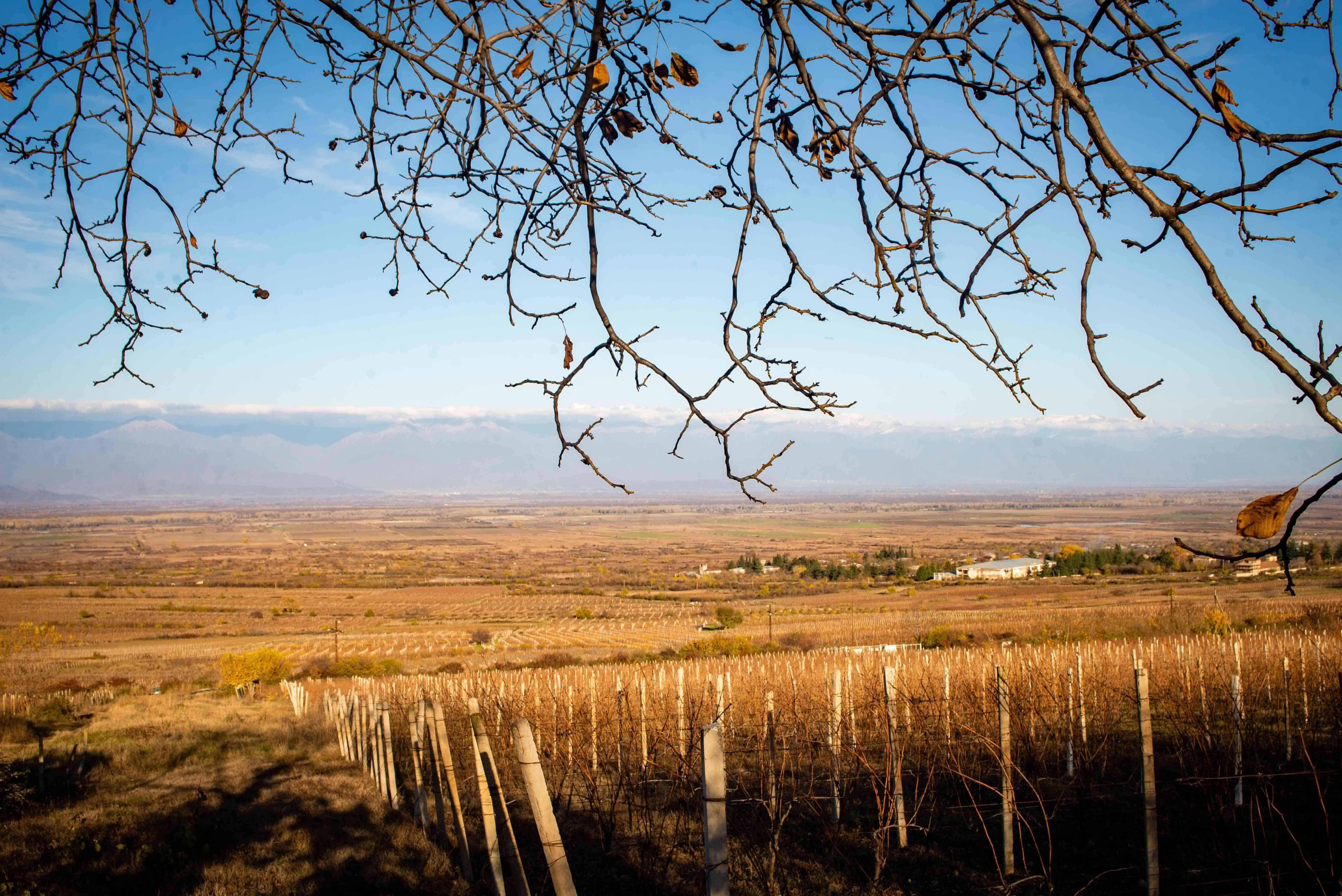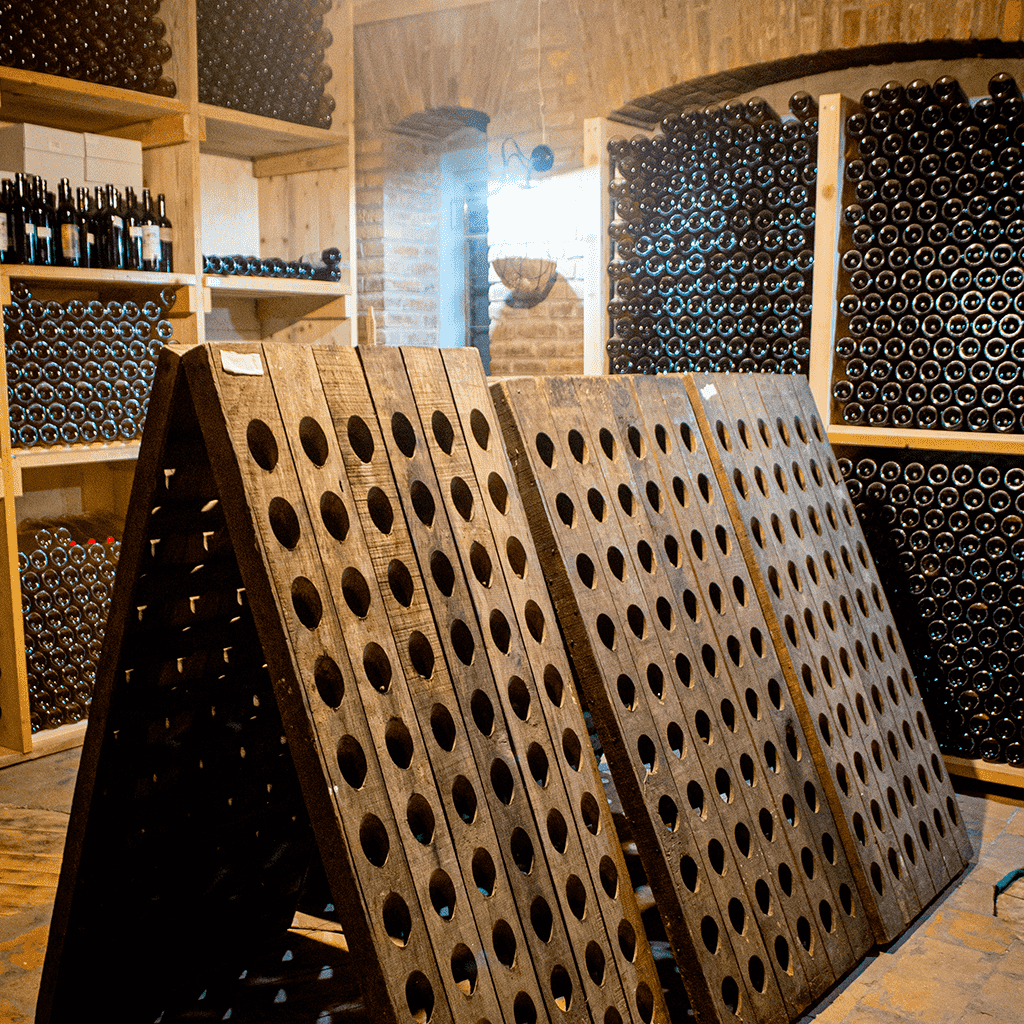News . 27-12-2022
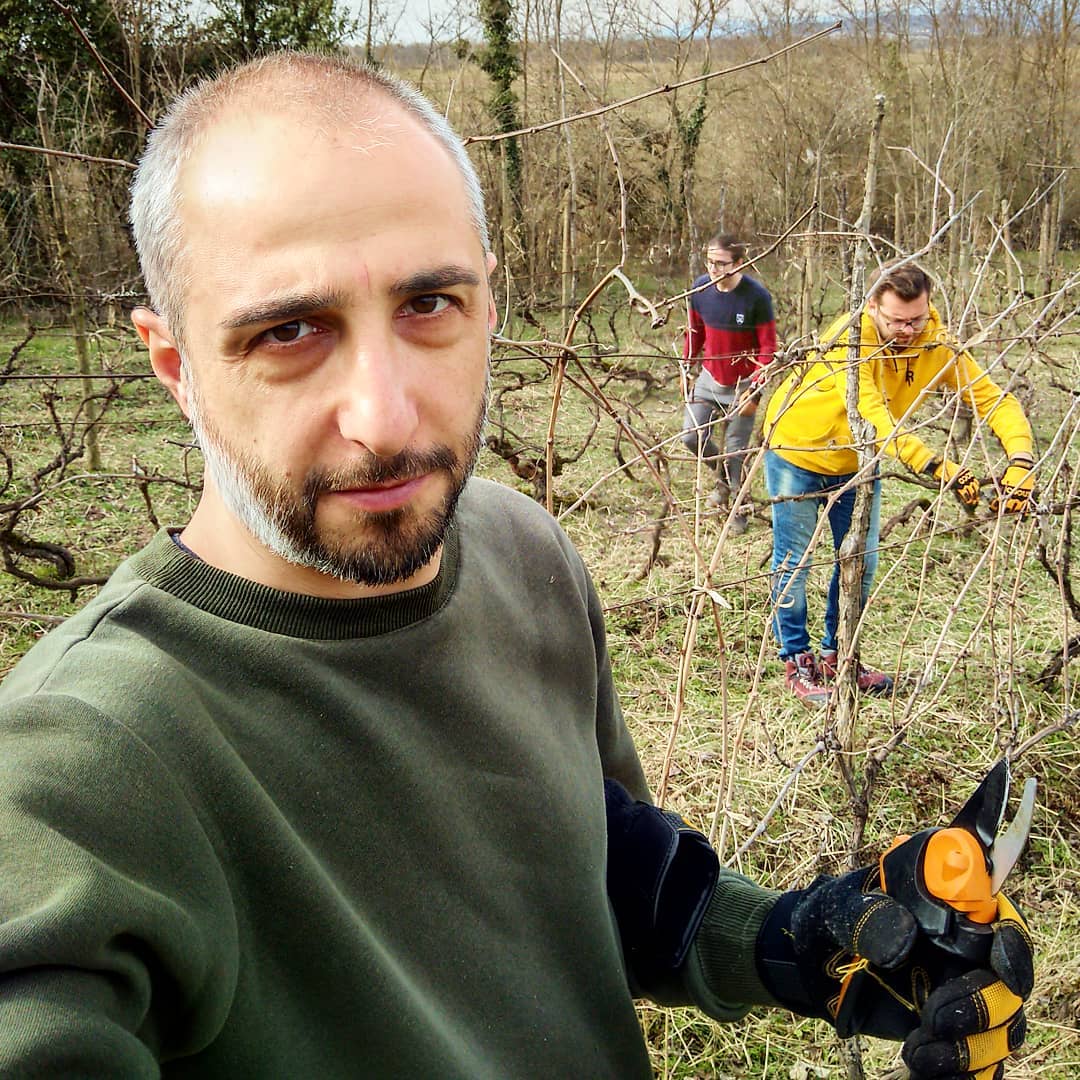
Proper vineyard treatment using the example of one member
Vine treatment is one of the most important processes in bio and bio-dynamic viticulture/winemaking. The quality of the grapes and subsequently of the wines is mostly defined by the type and dosage of preparations used for treating the grapes and the grape-grower/winemaker members of Natural Wine Association know it all too well.
Probably, it’ll be interesting to learn what importance proper vine treatment and saying no to pesticides and herbicides bear using the example of one of the grape-growers/winemakers from Imereti region Giorgi Mshvenieradze and his wine cellar called Mshvenieradzeebis Marani (Mshvenieradzes’ Wine Cellar), it’s also interesting to know what challenges the long and quite an important process of natural winemaking faces.
Giorgi Mshvenieradze, “Mshvenieradzeebis Marani” (Mshvenieradzes’ Wine Cellar): “We stick to natural winemaking, which requires taking care of the wine quality starting from the vineyard. Therefore, we don’t use pesticides and herbicides when looking after the vineyard, we don’t use mineral fertilizers, we don’t try to generate big harvests, we support formation and preservation of natural environment.”
- How is this reflected on harvests?
- “We try to generate maximum 5 metric tons of grapes per 1 hectare of land. At this stage we own about 0.75 hectares of yielding vineyards and correspondingly, this year we harvested about 3 tons of grapes. We grow 3 varieties of grapes in our yielding vineyards, these are Dzelshavi, Tsitska and Tsolikouri. Vineyards are isolated, and they don’t have common borders with other owners’ vineyards.”
- What are the main grape diseases you have to deal with in Imereti?
- “The main diseases that we have to protect our vineyards from are mildew and Oidium. Oidium mainly targets the Tsitska variety, Dzelshavi is more prone to mildew. Tsolikouri is relatively disease-resistant.”
- What preparations do you use for treatment?
- “We use the following preparations: Kocide 2000 (copper (II) hydroxide 53.8% (equivalent of 35% copper)) and Kumulus (fungicide containing Sulphur). We also treat the vineyards with nettle tincture. We plan treatment of vineyards with fungicide based on meteorological conditions rather than a strictly set schedule. This year cicadas appeared in our vineyard, unfortunately, we couldn’t manage to prevent this from happening. According to the existing observations, cicadas appeared in the bio vineyards of Imereti and Shida Kartli last year. Correspondingly, we’re going to plan preventive measures next year. After the first decade of August we no longer treat the vineyards. If necessary, we also organize the so called green vintage in the vineyard, when we remove bunches of grapes from the overburdened vines in order to lessen their load.”
- What were the harvests like this year?
- “This year we had too many rains after August, which had a negative impact on the quality of grapes, that’s why, contrary to the forecasts, we lost around 25% of the harvest. However, in the long run, the aforementioned steps help us increase the quality of grapes, which is eventually reflected in the quality of wine.”
